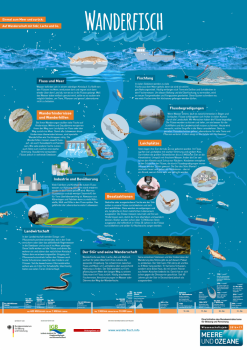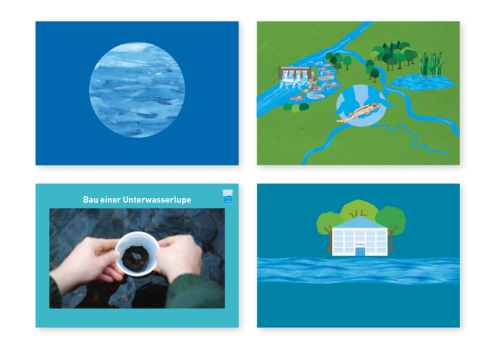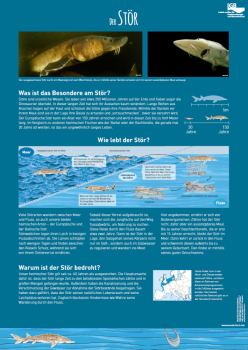© Angelina Tittmann/IGB
Option 1: River habitats and migratory fish
While a single river or lake is sufficient habitat for some fish, migratory fish are more demanding: like humans, they look for the right environment for each stage of their lives. Sturgeon, for example, spend most of their time in the sea, but migrate hundreds of kilometers up our rivers to reproduce. Sturgeon, along with salmon, allis shad, houting and eel, provide a strong link between our rivers, the sea and coastal areas.
The workshop focuses on the river as a habitat and provides teachers with materials in four categories:
- Inspiration
- School projects
- Experiments and equipment
- Field trips
These offer creative ideas for activities that can be carried out with everyday objects in the classroom or on field trips.
Curriculum framework
The content is particularly suitable for teaching sciences (grades 1-6: concept of interaction, system concept, movement in water), biology (grades 7-8: consideration of ecosystems as a whole, habitats and their inhabitants) and geography (grades 7-8: natural and anthropogenic phenomena, spatial problems on rivers, human-environment interactions).
Education for sustainable development also makes it possible to include the themes in other school subjects. For example, in German, fantasy stories can be told about water bodies, or in art, pictures can be drawn about migratory fish. In history, changes in cultural landscapes and different forms of use can be discussed.
Duration
90 to 120 minutes
Speaker
Jörn Gessner is a biologist and scientist at IGB. He has been coordinating the reintroduction programmes for the European and Baltic sturgeon in Germany since 1996. Jörn is supported by IGB's Communication and Knowledge Transfer team.








